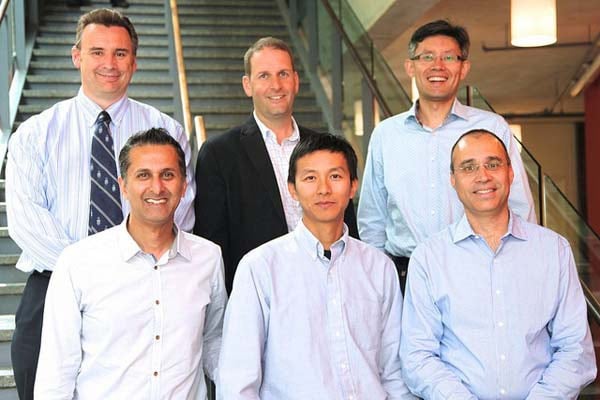
Investors back U of T spinoff with more than $2 million
Published: September 17, 2013
A University of Toronto spinoff company poised to radically improve HIV treatment in the developing world has landed one of the largest angel investments in Canadian health care.
ChipCare Corporation, co-founded by University of Toronto PhD candidate in The Edward S. Rogers Sr. Department of Electrical & Computer Engineering, James Dou, is slated to receive $2.05 million. The funding, from government and private investors, will allow ChipCare Corp. to refine its handheld tester for monitoring infection-fighting white blood cells.
The financing evolved through a uniquely collaborative funding model among Canadian social angel investors, including Maple Leaf Angels, MaRS Innovation and the University of Toronto (Connaught Fund), with special financing leadership from Grand Challenges Canada and the Government of Canada.
"The impact on in-the-field HIV diagnostics alone could be revolutionary; this financing is critical to our commercialization roadmap," says Dou, ChipCare's chief technology officer.
Dou developed the device with his PhD supervisor, Professor Stewart Aitchison of Electrical & Computer Engineering at the Faculty of Applied Science & Engineering.
About the size of a grocery store scanner, it gives blood test results on the spot and within minutes.
The tester allows healthcare providers to monitor levels of a collection of white blood cells called CD4 cells. HIV destroys CD4 cells, leaving patients vulnerable to infection. If the device indicates low numbers of these cells, healthcare workers can administer antiretroviral drugs. Bringing the device to the patient means those affected by HIV don’t have to travel long distances for assessment.
With joint funding from the federal government and Toronto-based private investment group Maple Leaf Angels, ChipCare Corp. will spend the next three years refining the device to reduce its cost and increase its durability.
"To the best of our knowledge, this is at least the second largest healthcare angel investment in Canada's history –and it might well be the largest by the time the project reaches full maturity," says U of T Engineering alumnus Adrian Schauer of Maple Leaf Angels. "The diagnostic potential of this device can hardly be overstated.
"We are investing heavily in its commercialization because we see the potential to revolutionize bedside testing for many conditions, from HIV and malaria in the developing world, to sepsis, heart disease and cancers here at home.”
The federal government funding – announced Sept. 16 – is being channeled through Grand Challenges Canada, which funds innovators in low- and middle-income countries and Canada, and through MaRS Innovation.
“It’s been very rewarding to see a project move from the lab to a real world application,” says Aitchison.
With the help of U of T’s Innovations and Partnerships Office (IPO) and Rotman School of Management, Dou, Aitchison and biological testing expert Rakesh Nayyar created the start-up company, ChipCare Corp.
Sharon Oosthoek is a writer with the Faculty of Applied Science & Engineering



